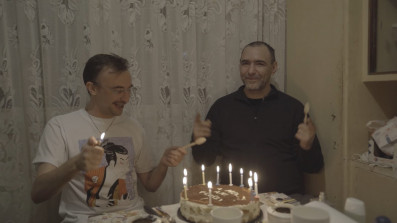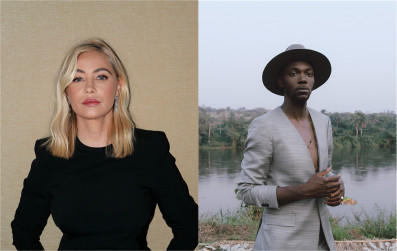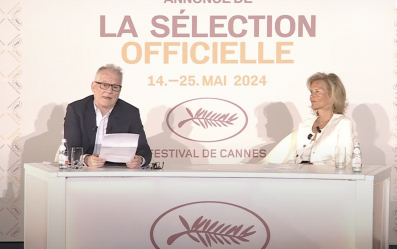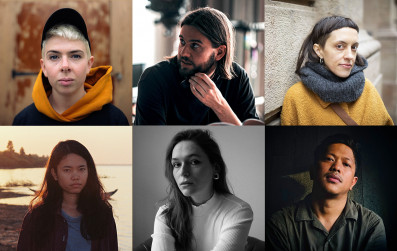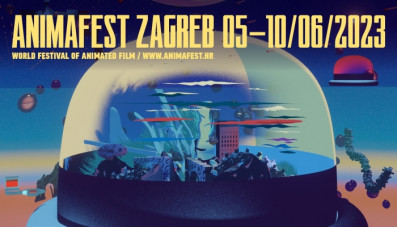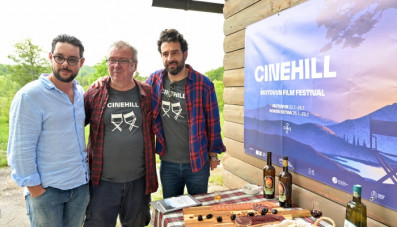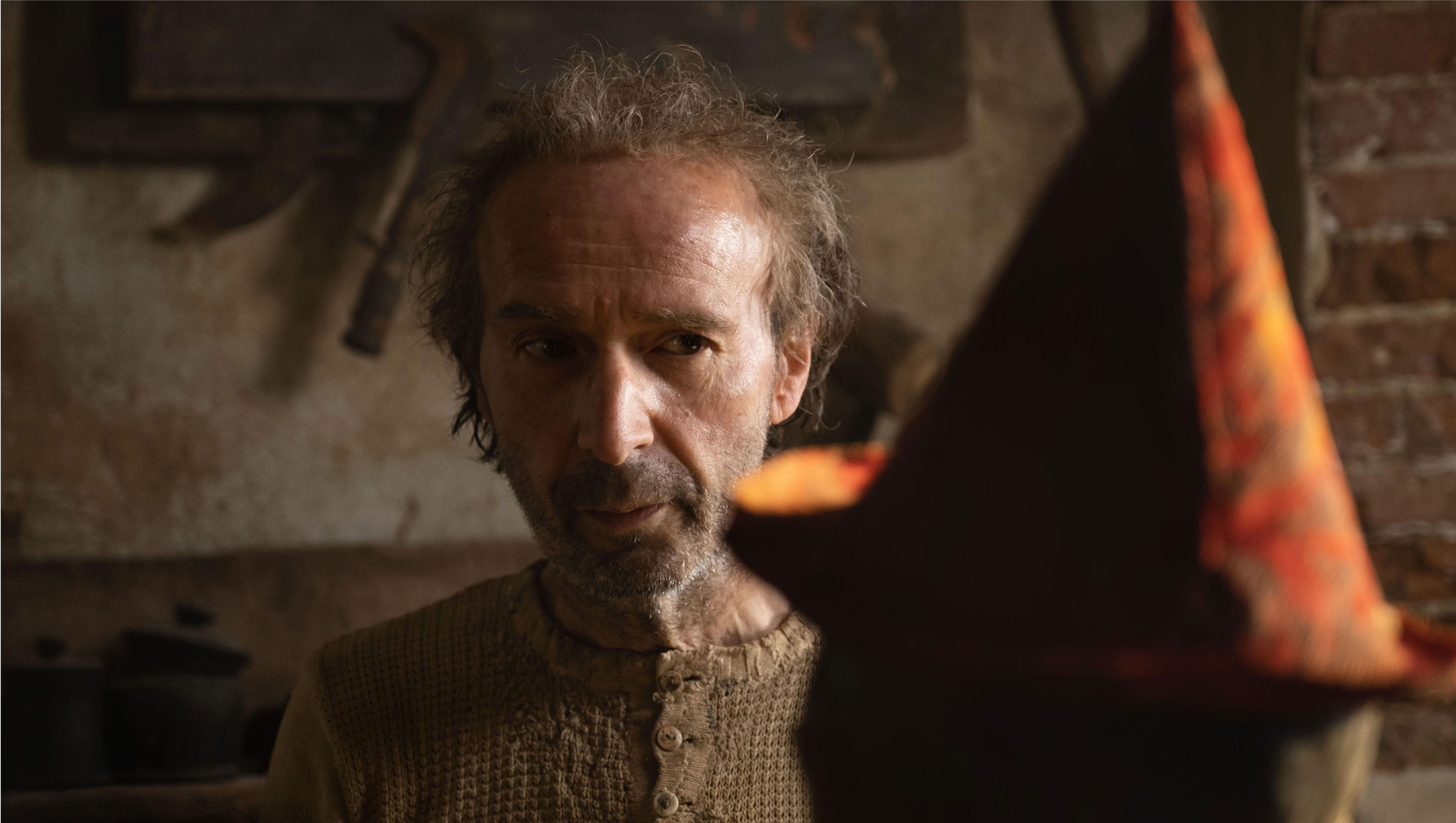
BERLINALE SPECIAL Day 4: Competition films "Undine" and "All the Dead Ones" do not entertain as much as Berlinale Special screening of Matteo Garrone's "Pinocchio".
Could this truly be the year of average films in Berlinale competition?
At the fourth day of Berlinale, films Undine and All the Dead Ones had their premieres in the competition programme, while Mateo Garonne - the dark mastermind behind 2018. film Dogman - had a special screening of his adaptation of Carlo Collodi's Pinocchio.
"You stay here until I come back from work. Then you tell me that you love me. Otherwise, you will die. " - says Undine Wibau, a young woman, in the middle of a small lost-in-time-and-space looking coffee shop, to her cheating partner Johannes with all the seriousness and somewhat excessive level of commitment to the idea, in opening minutes of Undine, the latest feature film by Christian Petzold.
The uncommon and yet sincere name of a woman takes roots from mythology and literary fiction. Undine is a soulless water nymph that gets her embodiment only when someone faithful is in love with her. If the faithfulness ceases to exist, the life of nymphs lover is about to end...
Undine - starring Baula Beer - is a historian lecturing on Berlin's urban development. Right after the betrayal of her partner Johannes - starring Jacob Matschenz - a new man Christoph enters her life unexpectedly. Christoph - starring Franz Rogowski - an underwater welder seems like a safe harbour in a recent water storm Mrs Wibau had just survived in her love life. But as the new couple start becoming closer, it seems like a certain course, that her name brings is following Undine.
Director Petzold with his latest work strays away from a more grounded and visually smoothed out drama's that we got used to seeing from him. This time around he brings symbolism soaked, poetically influenced film, that is certainly one of the better inquiries of Berlinale competition so far.
As the love story between Christoph and Undine develops, we are following the simple moments of momentary bliss and joy between the couple. Walking on the edge between romanticised couple moments and shabby fiction Petzold manages to sneak in the potential troubles the protagonists are heading towards. Huge catfish Christoph encounters in one of his swims, a broken deep diver doll Undine owns, a fish tank that shatters into pieces when they first meet, everything around the protagonists adds into the water nymph mythos.
Petzold takes certain risks with pushing the story towards the edge of reality but never truly crossing it in a way that it can't be read as a psychological state of characters, additionally showcases the brilliance of the author. Of course, worth mention are subtle, yet precise and emotionally charged performances of Beer and Rogowski.
All in all, Undine is a decidedly minimalist film made almost entirely without twists, shallow and heartbreaking emotional outbursts or crazy action-like works of similar fiction like A Creature From the Black Lagoon or The Shape of Water. Petzold does not feel the need for sensations and exaggerations, so he simply brings us a simple and enjoyable film about the water nymph, on the verge of psychologically profound reality and German literary fiction.
Undine©Christian Schulz/ Schramm Film
All the Dead Ones, Brazilian 19th century period piece directed by Marco Dutra and Caetano Gotardo brings the spirits of slavery past and its reflections on the present in the painstaking study divided into three peculiar chapters that dig deep under the surface of repression.
The film follows the Soares family and their decaying coffee plantation business. As Isabel - starring Thaia Perez, starts to show signs of ageing and discomfort her lucid piano prodigy daughter Ana - starring Carolina Bianchi - wants to commit her mother to ancient slave rituals, so she and her nun sister Maria - starring Clarissa Kiste- try to convince the former slave Ina - starring Mawusi Tulani - to come back to Sao Paulo and help their falling legacy.
There is a lot to admire and yet way more to question in All the Dead Ones. On one side it is an extremely visually pleasing film with a strong and important female-centric approach, that talks about a topic that is still a hot potato in its region. The way directors tell stories of the two families, Soares's and Ina's concurrently without giving a more of a significance to one than to another is also something to praise upon.
Then again, when it comes to the final execution, the shape story gets over the course of 120 minutes runtime troubles start rising. Just to be clear, the three-chapter structure, surely accomplishes the vision of directors. The line can be drawn between the period of slavery. In the first chapter, it is obvious that while Ina and other slaves had religion to keep them shielded against their owners, their owners were living in morbid joys and high societal prosperity. In the second chapter the shift occurs, the rejection of religion that brings the memories of slavery tries to be pushed away on one side while on the side of white aristocracy the time of decay has come, just so in the final chapter film, ones again turns everything upside down talking about the reclaiming of traditions by former slaves and acceptance of the faith by nobles.
What truly makes the problem for this film is its poetical mysticism that caries along out through trying to make obvious things (that everyone has died in the vain with needless suffering) look smart, symbolic and uplifted. With all the quirky intrusions of poetics into an already long and complex story, the film gets a bit slow and often painstakingly drags viewers in the wrong direction without ever truly redeeming itself with any proper hints or explanations.
Mateo Garonne adaptation of Pinocchio surely doesn't need much introduction. It is the story that we all loved as children and this is a film everybody has been talking about during the 4th day of Berlinale. Based on Carlo Collodi children book that follows of mischievous carved from wood puppet Pinocchio- starring Federico Ielapi - and the hardships that life brings to his carpenter father Geppeto. - starring Roberto Benigni.
In his adaptation, Garonne erases the magical bright colours and smooth bright faces away from the centre, bringing out the raw and authentic feel of Tuscany. Neutral warm colours as wheat field brown and deep blue dominate the film that combines CGI for its protagonist and mostly practical effects for the other characters. With mask and costume, designs director seeks to envoke vibes of small-town Italian theatres and street performers and as it might seem eerie at first, as the film proceeds it just magnificently grows to a viewers heart.
One of the two biggest difference that director made to a story is the plain beginning, where he takes his time to develop the character of Gieppeto and settle down the basis of his poverty carved society that naughty puppet will explore on his adventures. Benigni's Gieppeto is definitely the highlight of the film, with his passionate performance that manages to envoke the feeling of empathy towards him while simultaneously it will bring a cheerful smile on a viewer's faces.
The second significant difference is that Garonne doesn't give slack to his Pinocchio, and doesn't relly to much on good faith and magic that the puppet learned its lessons during the adventures. Rather, in the closure of the film, he offers his protagonist a chance to redeem himself and deserve the status of "a true boy". This might all seem like a bit too serious for a children's film, but the film balances this quite alright.
When taken into consideration that for the past 70 years, there was at least one new adaptation of a story every decade and that Disney and Guillermo Del Toro are working on their own live-action iterations of Pinocchio - that will probably be released already next year - it is hard to talk about the faith of Garonne grounded Italian approach to a story of mischievous puppet that wants to become a boy.



